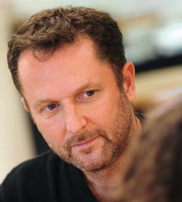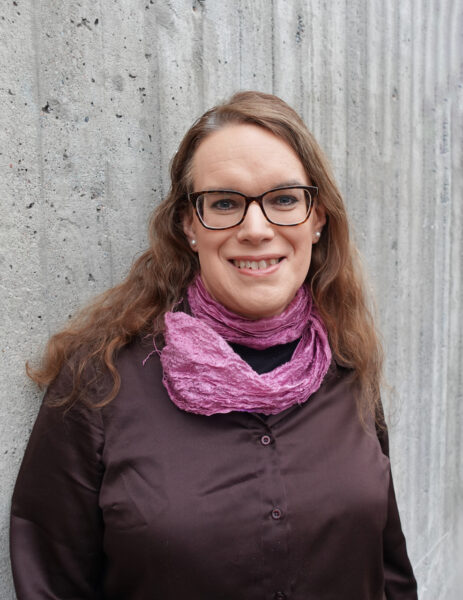Join us for the Joint Summer School on Resilience and Regulation, arranged by the WASP Research Arenas Robotics, Public Safety and Media & Language, as well as WASP-HS.
This year’s theme—Resilience and Regulation—centers on building safe and robust AI-driven systems while addressing the legal and regulatory frameworks shaping AI and autonomy. The summer school welcomes PhD students from various disciplines, fostering interdisciplinary discussions on the challenges and opportunities in developing responsible and resilient autonomous technologies.
The program will feature a mix of lectures, hands-on technical sessions, workshops and student presentations, with embedded discussions on regulatory and legal aspects across all tracks. Beyond the academic experience, the Summer School offers engaging social activities and a conference dinner.
This summer school is a unique opportunity to explore your research at the intersection of technology, regulation and resilience, while connecting with peers from WASP and WASP-HS.
Target Groups
The main target group from WASP Graduate School is Class 2024, however, students from other classes are more than welcome to attend.
All WASP-HS graduate students are expected to attend.
Accommodation
During this week, Norrköping is hosting an SM-week so there is a high demand for accommodation during this period. We strongly recommend booking your accommodation provided that.
Accommodation WASP-HS students
WASP-HS have booked rooms at Scandic Strömmen for their students. Visit hotel website.
Accommodation WASP students
You are responsible to book you own hotel accommodation but due to the high demand of hotel rooms during this week there are rooms reserved by WASP at Hotel Nordic which you can book at your own expense. You will need to fill in your credit card when you book the room. The rooms are available until May 25th but please note that we only have a limited amount of rooms so the rooms might be fully booked before that date.
Visit this website to book your room. Fill in booking code “TRAVEL”.
- Single room (for 1 person): 1010 SEK/night including breakfast and VAT
- Double room (for 2 persons): 1400 SEK/night including breakfast and VAT
If you don’t get a room in Norrköping, there is a possibility to stay in Linköping and commute to Norrköping (approximately 30 minutes by train or bus).
Tracks
The Summer School is divided into three tracks: WARA Media and Language, WARA Public Safety and WARA Robotics.
WASP students can choose any track, as long as they meet the requirements needed for the track. WASP-HS students can choose any track.
Read more about the tracks and requirements further down on this page.
Cancel your participation
If you need to cancel your participation, it is important that you contact us as soon as possible. Send an e-mail to wasp.event@partner.liu.se.
Participation in the conference is free of charge, but if you fail to attend without prior notification, we will charge a fee of 700 SEK.
Program
Venue: Campus Norrköping
11:00 Registration
Room: TP1
12:00 Lunch
Room: TP1
13:00 Welcome and practical information
Room: TP1
13:30 EU AI act – Interactive workshop WASP-HS – Katja de Vries, Public Law, Uppsala University and Liane Colonna, Law and Information Technology, Stockholm University
Room: TP1
14:30 Coffee break
Room: TP1
15:00 The Different Aspects of Trust in AI-software products. Practical challenges of working with trust in an AI-integrated research platform. Regulations, expectations and user experience – Alexandra Kafka Larsson
Room: TP1
15:45 Inspirational Applications of Gen AI – Guy Gadney, Charisma AI
Room: TP1
17:00 Dinner wrap & visit the exhibitions
Venue: Visualiseringscenter C
18:00 Walk in space with Anders Ynnerman
Venue: The Dome, Visualiseringscenter C
20:00 End of day 1
9:00
WARA ML track: Introduction to assignment
Room KO23
WARA PS track: Introduction to assignment
Room: KO22
WARA Robotics track: Introduction to assignment
Room: KO25
10:00 Coffee break
10:30
WARA ML track: Workshop om LLMs
Room KO23
WARA PS track: WASP-HS Workshop 1
Room: KO25
WARA Robotics track: work on assignment
Room: TBA
12:00 Lunch
13:00
WARA ML track: Work on assignment
Room: KO121, KO122, KO123, KO221
WARA PS track: LE1 Introduction to human-autonomy teaming
Room: KO22
WARA Robotics track: WASP-HS Workshop 1
Room: KO25
14:00
WARA PS track: LE1 Introduction to cognitive systems engineering
Room: KO22
14:30 Coffee break
15:00
WARA ML track: WASP-HS Workshop 1 & work on assignment
Room: KO23
WARA PS track: LE2 Resilient automation
Room: KO22
WARA Robotics track: Work on assignment
Room: KO25
17:00 Optional social activity: join in on SM week activities
We meet after class at Kopparhammaren 2
9:00
WARA ML track: Work on assignment
Rooms: KO121, KO122, KO123, KO221
WARA PS track: LE3 Introduction to Jont Control Framework, UTM CITY simulator, and assignment
Room: KO22
WARA Robotics track: Work on assignment
Room: KO25
10:00 Coffee break
10:30
WARA ML track: Work on assignment
Rooms: KO121, KO122, KO123, KO221
WARA PS track: Hands-on introductions, experimentations in UTM CITY
Room: KO22
WARA Robotics track: Work on assignment
Room: KO25
12:00 Lunch
13:00
WARA ML track: Workshop Tangibility and intangibility of data
Rooms: KO23
WARA PS track: Workshop: UTM CITY, human-AI teaming for resilience
Room: KO22
WARA Robotics track: Workshop Tangibility and intangibility of data
Room: KO25
14:30 Coffee break
15:00
WARA ML track: Work on assignment
Rooms: KO121, KO122, KO123, KO221
WARA PS track: Workshop Tangibility and intangibility of data
Room: KO22
WARA Robotics track: Work on assignment
Room: KO25
17:00-18:00 WASP-HS PHD Council meeting
Room: KO23
18:30 Picnic in Folkparken
Meeting place (map)
9:00
WARA ML track: Work on assignment
Rooms: KO121, KO122, KO123, KO221
WARA PS track: Keynote by aviation experts (LFV/Liu)
Room: KO22
WARA Robotics track: Workshop on Failure and Trust
Room: KO25
9:30
WARA PS track: Work on the assignment in UTM CITY
Room: KO22
10:00 Coffee break
10:30
WARA ML track: Finalise and hand in assignment
Rooms: KO121, KO122, KO123, KO221
WARA PS track:Q&A with aviation experts + work on the assignment in UTM CITY
Room: KO22
WARA Robotics track: Workshop on Failure and Trust
Room: KO25
12:00 Lunch
13:00
WARA ML track: Poster Session
Room: KO23
WARA PS track: Prepare for demo
Room: KO22
WARA Robotics track: Prepare for demo
Room: KO25
14:30 Coffee break
15:00
WARA PS track: Prepare for demo
Room: KO22
WARA Robotics track: Prepare for demo
Room: KO25
17:30 City tour of Norrköping
We meet outside of Visualiseringscenter
18:30 Pre-dinner mingle
Venue: Restaurant Vy
19:00 Conference dinner
Venue: Restaurant Vy
Venue: Dome, Visualiseringscenter C
9:00 Presentations in the dome – WARA ML track
9:45 Coffee break
10:15 Presentations in the dome – WARA PS track
11:00 Evaluation
11:15 Presentations in the dome – WARA Robotics track
12:00 Grab and go lunch and summer school ends
WARA Media and Language track
The WASP Research Arena for Media and Language (WARA M&L) builds a multidisciplinary ecosystem that bridges scientific fields and industrial sectors.
The WARA Media and Language track focuses on generative AI models of human communicative behaviour, such as text, speech audio, and 3D motion, and how these can be combined to obtain a communicating avatar. The track has two parts: an online pre-assignment (1.5 ECTS) and the on-site work (1.5 ECTS): In the pre-assignment, students learn how synthesis differs from classification and regression in machine learning and are introduced to technologies such as language modelling, speech synthesis, etc. They also fine-tune a flow-matching based-speech synthesiser on their own voice. The subsequent on-site assignment in Norrköping comprises workshops on AI and regulation, along with group work where students use generative AI tools and technologies to create a brief 3D video skit with a variety of animated avatars that speak using the text-to-speech voices created during the pre-assignment. The resulting video is shown to all summer-school students in 3D in the visualisation dome on the last day.
WASP students must complete both the pre-assignment and the on-site assignment. WASP-HS students participating in the M&L track are only required to do the on-site component, but may also choose to complete the online pre-assignment if they wish to do so and have the technical proficiency to comprehend maths and use PyTorch.
1.5 ECTS credits for the in-person summer school (mandatory for everyone in the M&L track).
+ 1.5 ECTS credits for the online pre-assignment (mandatory for WASP students in the M&L track; optional for WASP-HS students in the M&L track).
WARA Public Safety track
Public Safety and Security research is of increasing importance globally. The WASP Research Arena for Public Safety (WARA PS) promotes research in collaborative heterogenous agents and systems of systems - with the mission to keep society safe.
The WARA PS track focuses on Human-AI Teaming to enhance societal safety. Participants will learn and apply the Joint Control Framework (JCF), which describes interactions between human operators and autonomous, automated, and manual control systems, to analyze the humans role in autonomous systems.
Students will engage in hands-on exercises to modify systems, exploring ways to strengthen human operators’ roles in autonomy. The course is scenario-driven, bringing research closer to real-world applications and encouraging students to critically assess the societal impact of autonomous systems. Labs will utilize Urban Air Traffic Management (UTM), a cutting-edge system for unmanned aerial systems.
Students will focus on developing and analyzing scenarios related to regulation and prioritization.
Lectures will complement the labs and exercises, culminating in a final demonstration on the last day of the summer school. To earn full credit, students must attend all lectures and complete assigned tasks.
It is also possible to do an optional post-assignment. If you choose to do the optional post-assignment, you will conduct an in-depth study on human-AI teaming challenges within the public safety scenario developed during the summer school. Results of the post-assignments will be presented during the WARA PS Demonstration week (week 38) in Västervik.
Familiarity with the Python programming language.
1.5 ECTS credits for the in-person assignment (mandatory for everyone in the public safety track).
1.5 ECTS credits for optional post-assignment (open for both WASP and WASP-HS students).
WARA Robotics track
Discovering unforeseen challenges and driving breakthroughs – this is the essence of the WASP Research Arena for Robotics (WARA Robotics). We are creating a tangible, industry-relevant environment tailor-made for revolutionary industrial automation research.
The WARA Robotics track explores the challenges of resilience and regulation in robotics and AI, focusing on trust dynamics between humans and autonomous systems.
Students will interact with a language-enabled robot (a dual-arm ABB YuMi robot) , instructing it to build structures with cubes or arrange them in specific patterns. However, they may encounter unexpected execution failures, leading to disruptions in their tasks.
Through this hands-on experience, students will critically examine the consequences of robot failures, discuss the psychological and ethical implications of trust in automation, and explore strategies for rebuilding reliability in AI-driven systems.
The workshop will equip participants with a deeper understanding of how human-robot trust is established, broken, and repaired, informing broader discussions on responsible AI development and regulation.
Familiarity with the Python programming language and preferably experience with Linux OS.
1.5 ECTS credits for the in-person assignment (mandatory for everyone in the robotics track).
1.5 ECTS credits for the online pre-assignment (this is conditioned to the collaboration with WARA-OPS)
WASP Humanity and Society
The Wallenberg AI, Autonomous Systems and Software Program – Humanity and Society (WASP-HS) is a national research program in Sweden. The vision of WASP-HS is to foster novel interdisciplinary knowledge in the humanities and social sciences about AI and autonomous systems and their impact on human and social development and vice versa. WASP-HS enables cutting edge research, expertise and competence building in the humanities and social sciences. As such, WASP-HS contributes to the development of innovative humane technologies and their transformative interaction with society.
Adresses
Registration opens: Monday at 11:00, house Täppan at Campus Norrköping, entrance 34. Find on map here.
Program starts: Monday at 13:00 in room TP1 (house Täppan) Find on map here.
Adress to Täppan:
Bredgatan 34
602 47 Norrköping
Walk in Space and dinner wrap on Monday are at Visualiseringscenter C.
Adress to Visualiseringscenter C:
Kungsgatan 54
602 33 Norrköping
Tuesday to Thursday, when you have different tracks, the rooms are located at Campus Norrköping, Kopparhammaren 2, see the room for your track on the website. Find on map here.
Adress to Kopparhammaren 2:
Norra Grytsgatan 10
602 33 Norrköping
City tour of Norrköping on Thursday: we meet outside of Visualiseringscenter C, see address above.
Dinner on Thursday: Restaurant Vy.
Adress:
Laxholmen
602 21 Norrköping.
Speakers

Guy Gadney
Guy Gadney is the CEO of Charisma.ai, an innovative platform leading AI-powered storytelling. With a career in international media, start-ups, and award-winning productions, Guy has shaped the future of narrative through AI.
His projects, recognized by Emmy and BAFTA awards, span drama, factual TV, and interactive entertainment, focusing on next-gen storytelling. Under his leadership, Charisma has created interactive projects for Sky, BBC, StoryFutures, and writers using the Charisma Maker platform.
Guy is a thought leader in AI and the arts, serving on various advisory boards and committees. He researches the impact of automation on story structure, ethical frameworks for AI content, and new narrative forms to enhance human creativity.

Alexandra Kafka Larsson
Alexandra Kafka Larsson, Founder and CEO at Parsd AB. Alexandra has a multifaceted background as a military intelligence officer, political scientist, chief architect and is the founder of the SaaS tech-startup Parsd. Parsd helps analysts create fact-based insights from unstructured information like text, sound, and video.
Video from last years' Summer School
Meet the WASP Research Arenas
Contact
For general questions from WASP PhD students, contact wasp.event@partner.liu.se
For general questions from WASP-HS PhD students, contact graduate.school@wasp-hs.org



